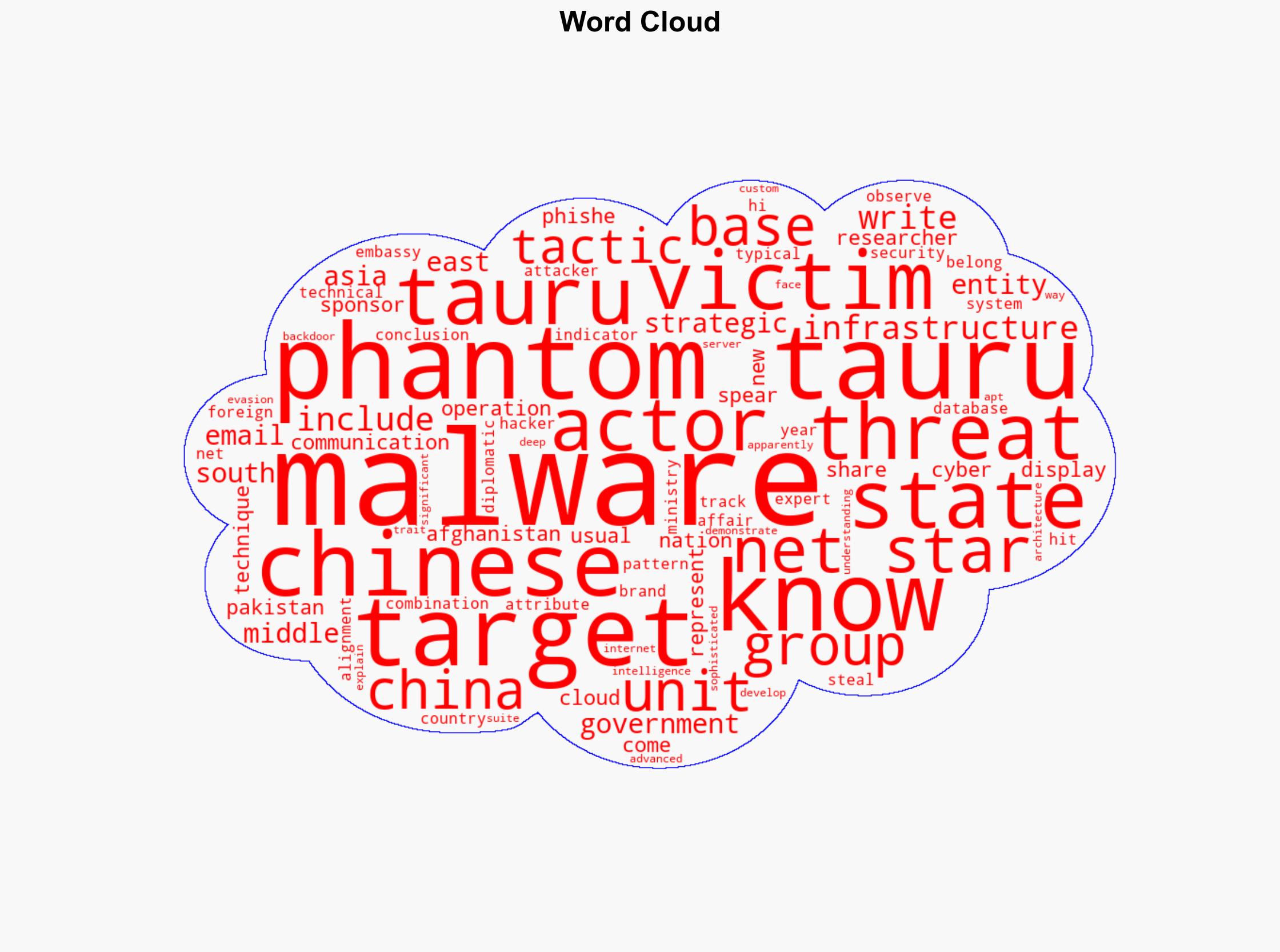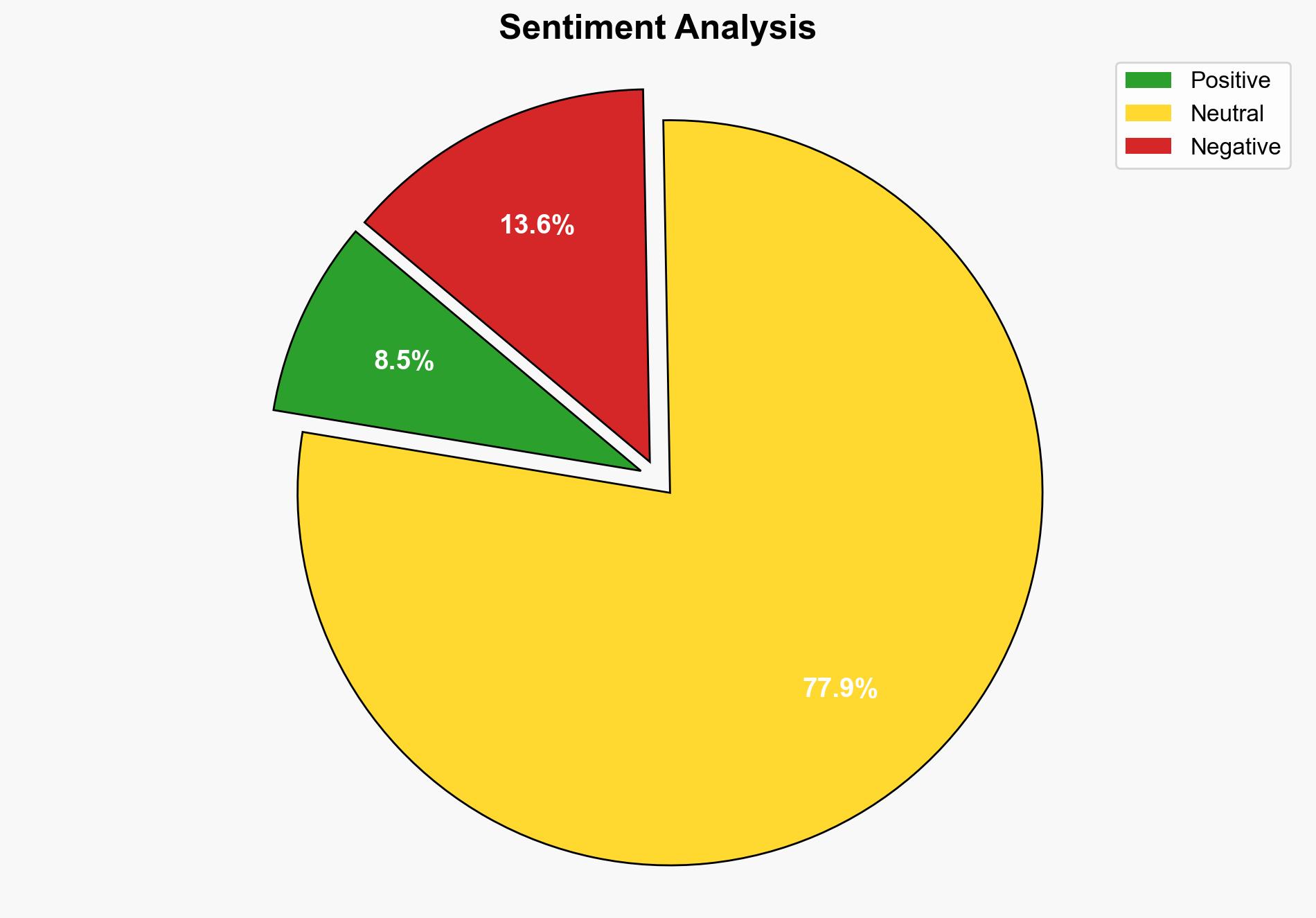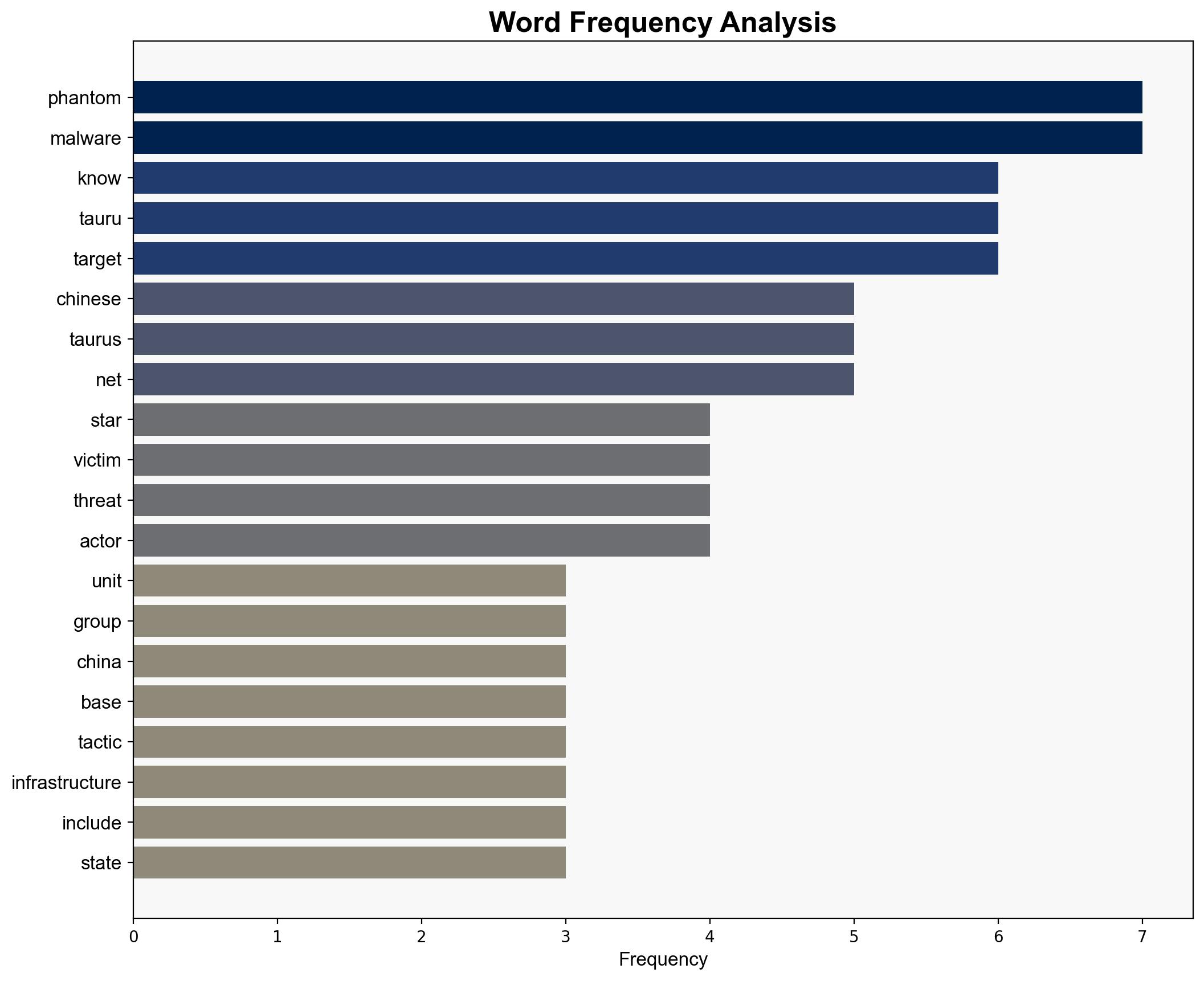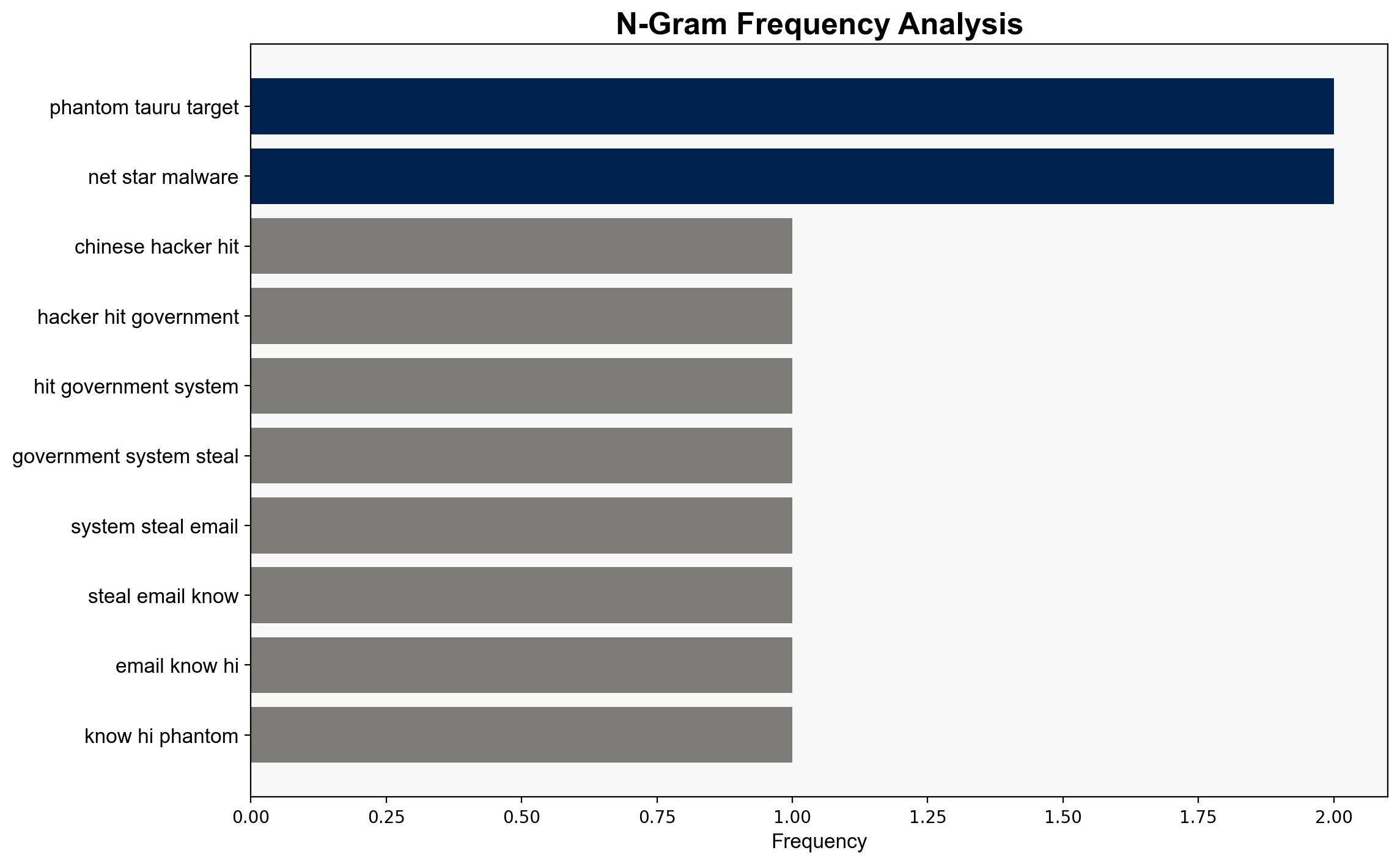Chinese hackers hit government systems stealing emails and more – here’s what we know – TechRadar
Published on: 2025-10-01
Intelligence Report: Chinese hackers hit government systems stealing emails and more – here’s what we know – TechRadar
1. BLUF (Bottom Line Up Front)
The most supported hypothesis is that the cyberattacks attributed to Phantom Taurus are state-sponsored operations by China, targeting diplomatic entities in South Asia and the Middle East. This aligns with observed patterns of strategic interest and technical indicators. Confidence level: Moderate. Recommended action: Enhance cybersecurity measures and international collaboration to counteract and attribute such cyber threats effectively.
2. Competing Hypotheses
1. **Hypothesis A**: Phantom Taurus is a Chinese state-sponsored group conducting cyber espionage operations targeting diplomatic entities in South Asia and the Middle East. This is supported by the use of sophisticated malware (Net Star), strategic target selection, and shared infrastructure with known Chinese APTs.
2. **Hypothesis B**: Phantom Taurus is an independent or non-state actor using Chinese tactics and infrastructure to mislead attribution. This could be a false flag operation designed to create geopolitical tension or cover for other malicious activities.
Using the Analysis of Competing Hypotheses (ACH) 2.0, Hypothesis A is more strongly supported due to the alignment of technical indicators, target patterns, and strategic interests consistent with Chinese state-sponsored activities.
3. Key Assumptions and Red Flags
– **Assumptions**: It is assumed that the technical indicators and infrastructure sharing are reliable indicators of state sponsorship. Another assumption is that the strategic targeting aligns with Chinese geopolitical interests.
– **Red Flags**: The lack of direct evidence linking Phantom Taurus to the Chinese government is a potential red flag. The possibility of a false flag operation remains, given the sophistication of the tactics used.
– **Blind Spots**: Limited information on the exact methods of infection and the full extent of the data compromised.
4. Implications and Strategic Risks
The continued targeting of diplomatic entities by Phantom Taurus could lead to increased geopolitical tensions, particularly if attribution to China is confirmed. This could escalate into broader cyber conflicts involving retaliatory measures. Economically, persistent cyber threats could undermine trust in digital infrastructure, affecting international relations and trade.
5. Recommendations and Outlook
- Enhance cybersecurity protocols for government and diplomatic entities, focusing on phishing defenses and zero-day vulnerability management.
- Strengthen international collaboration for cyber threat intelligence sharing and joint attribution efforts.
- Scenario-based Projections:
- Best Case: Improved defenses and diplomatic engagement reduce the frequency and impact of such attacks.
- Worst Case: Escalation of cyber conflicts leads to significant geopolitical instability.
- Most Likely: Continued cyber espionage with periodic attribution challenges and diplomatic tensions.
6. Key Individuals and Entities
– Phantom Taurus
– Mustang Panda
– Net Star malware
7. Thematic Tags
national security threats, cybersecurity, counter-terrorism, regional focus





